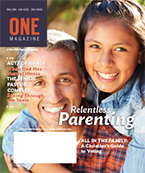
August-September 2016
Relentless Parenting
------------------
|
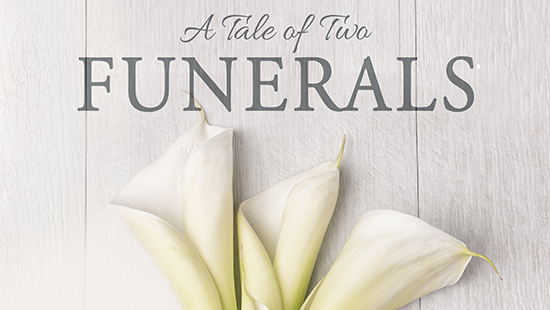





A Tale of Two Funerals
By Ruth McDonald
We lost two dear Japanese sisters in Christ during the past few months. Both were members of the Good News Chapel where we minister in the greater Tokyo area. We are certain both are enjoying the presence of Jesus in their eternal home, but their funerals could not have been more different.
A “Normal” Funeral
Mrs. Yuri Kanbara passed away first. Saved and baptized as an older adult, she grew in the Lord, attended church faithfully, and was a sweet part of our fellowship. She lived with her son and daughter-in-law, who were opposed to Christianity.
Four years ago, her health began to decline. Eventually, her children placed her in a nursing home. The family refused to tell the church where she lived and insisted that no one from the church be allowed to visit. We grieved the loss of her fellowship but continued to pray for her through the years.
Last fall, we received a call from her daughter-in-law informing us that Mrs. Kanbara was about to die. Several from the church visited, only to discover she was unable to respond.
When she passed away, her family welcomed us to the funeral. However, they insisted that, despite her Christian faith, she have a “normal” funeral. With over 95% of Japanese funerals being Buddhist, that is definitely the norm.
Her wake and funeral both featured a Buddhist priest chanting a sutra (a reading from Buddhist sacred texts). Incense filled the air, and offerings of rice and sake were placed on an altar to ease the spirit’s transition into the next life. The belief is that some people, having finished their earthly journey, will go to the other world, while others will be reincarnated into another life form. According to Buddhist teaching, humans really cannot know which will be his fate, or that of a loved one.
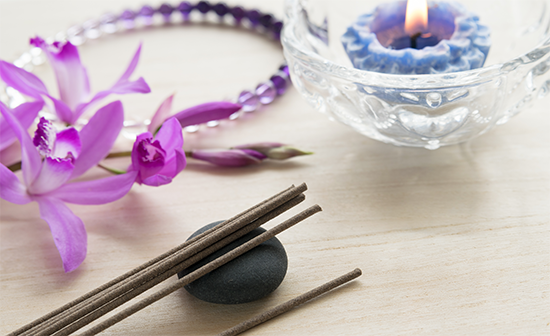
Each guest is expected to bring their hands together in prayer and bow to the dead, light incense to aid in the spirit’s journey, and then bow in respect to the family. Every attendee was expected to bring an offering of between $30 and $800, depending on the relationship, to help defray the cost of the funeral and cremation. Elaborate envelopes for these cash gifts abound in every store. The Buddhist priest requires a minimum fee of $4,000 for his services, separate from the cost of the funeral. Many funerals include multiple priests take part, although Mrs. Kanbara’s had only one.
We’ve attended many Buddhist funerals during our 30 years in Japan, and they are always a depressing affair. Everyone is expected to wear black clothing, and ladies are not to wear any lipstick, nail color, or accessories. The air is thick with incense, the “smell of death,” and the chanting of the priest is eerie and mournful, with the intermittent ringing of bells.
What’s a Christian to Do?
Christians in Japan struggle with how to navigate traditional Buddhist and Shinto ceremonies. Where does respect end and idolatry begin? Even after many years in Japan, we rely heavily on spiritually mature Japanese brothers and sisters in this area. As foreigners, we will never fully understand the subtle nuances and motives behind each custom.
Several from the church decided to attend. We wore black and took a cash offering. However, our gift was placed in a “Christian” envelope with a cross on it. It was marked “for flowers” so the Buddhist priest and temple would not receive any of it. We bowed to the body and to the family to show respect, but we did not burn incense or pray to the dead. Our hands stayed at our sides. When offered cleansing food and drink at the end to keep the spirit of death from following us home, we declined. We are afraid of neither death nor evil spirits.
A Lasting Testimony
Because Mrs. Kanbara traveled to church by train, she left a large-print, hardcover Bible on the bookshelf at church. It sat there during her four-year absence. One of our ladies purchased a distinctive, black silk bag for the Bible and presented it to the daughter-in-law with a card from our church members.
We prayed beforehand that she would receive it without argument, and she did. She even thanked us and said it was Mrs. Kanbara’s joy to attend church each Sunday. We will continue to pray that Mrs. Kanbara’s faith will reach her family, that they will read her Bible and believe in her Savior.
Although we were sad her funeral wasn’t Christian, we know for certain her faith was in Christ alone. I smile when I remember her first name, Yuri, means “Lily.” Each time I see an Easter lily, I am reminded she believed in Jesus, the resurrection and the life.
A Different Funeral
One of those who visited sweet “Lily” on her deathbed was Mitsue (pronounced MEET-SUE-EH) Kazama. None of us had any idea she would be in Heaven herself within the month. She was the picture of health, a woman who had gone skiing with her grandchildren in February. She was getting ready for church when she died suddenly of a massive brain hemorrhage.
Like Lily, she and her husband had been saved through the witness of missionaries. Their first contact with the gospel was through English conversation and cooking classes taught by Fred and Evelyn Hersey. They talked of how the Herseys’ love and hospitality led them to be saved and baptized at ages 33 and 30.
They have been faithful servants of the Lord for over 40 years, an integral part of the church-planting ministry at Good News Chapel since it began in 2002. Their lifelong appreciation for missionaries was especially evident when they welcomed short-term groups to Japan, entertaining them in their home, and taking them on tours of Tokyo.
We’ve all heard the maxim: “A Bible that is falling apart is usually carried by a person who isn’t.” Mr. Kazama is the perfect example. His Bible (pictured below) is literally in pieces, though he has patched and taped it many times. Every page contains underlining and every margin filled with notes. From the moment he discovered his wife’s body, he began to call on His Lord for strength. By the morning after, he had begun a list of things for which to be thankful in Mitsue’s passing. He showed us 17 items he had already listed.
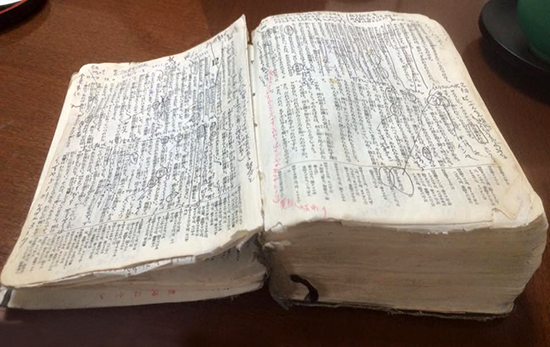
The Kazamas decided beforehand their funerals would not be normal—no cash offerings, no priest, no incense, and no prayers to or for the dead. They wanted the theme of their funerals to be the last verse of Amazing Grace: “When we’ve been there 10,000 years, bright, shining as the sun, we’ve no less days to sing God’s praise than when we’d first begun.”
My husband Donnie was to preach at the evening wake and morning funeral, and I was asked to sing and play the piano. As it happened, both Donnie and I were sick that week with cold and fever. I lost my voice completely. Add that to the especially difficult, honorific Japanese language used at formal occasions, and we knew we needed the Holy Spirit in the worst kind of way.
Of the 480 funerals held in that particular funeral home, only one had been a Christian service. The director had done his research, though, and the front of the room was decorated with lilies and a beautiful cross. We had complete freedom to conduct the funeral as we chose and as Mr. Kazama wished.
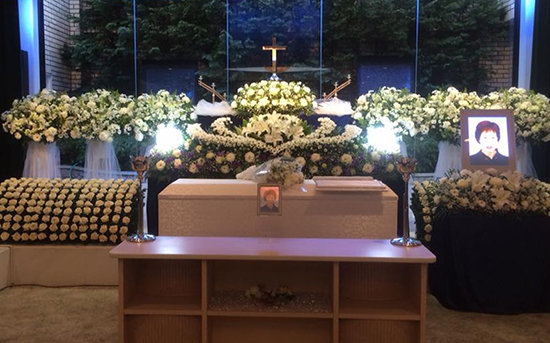
God answered the prayers of many. It was one of those wonderful experiences when the messenger knows for certain that his words are the Lord’s. As Donnie shared the simple gospel, 150 guests listened intently, most hearing it for the first time. Even the funeral home staff listened with focused attention.
Afterwards, people said the service was “easy to understand, full of light, joy, and hope…so different from a normal funeral.” Some expressed interest in learning more about Christianity. The Kazama’s son-in-law, who has lost three family members within the past year, said, “It seems like Christians are the ones who actually have the answers to the questions I’ve been asking about life after death.”
I asked Mr. Kazama if there was anything he wanted me to share in this article. Here are his words: “I want to thank Free Will Baptists for sending missionaries to Japan. Because of their work, my wife and I came to know Christ. Our lives were rescued from the kingdom of darkness into the kingdom of light.”
About the Writer: Ruth McDonald has served with Free Will Baptist International Missions as a missionary to Japan for the past 27 years. She and her husband Donnie have four children and one grandchild. Read more: www.fwbgo.com.
|
|

